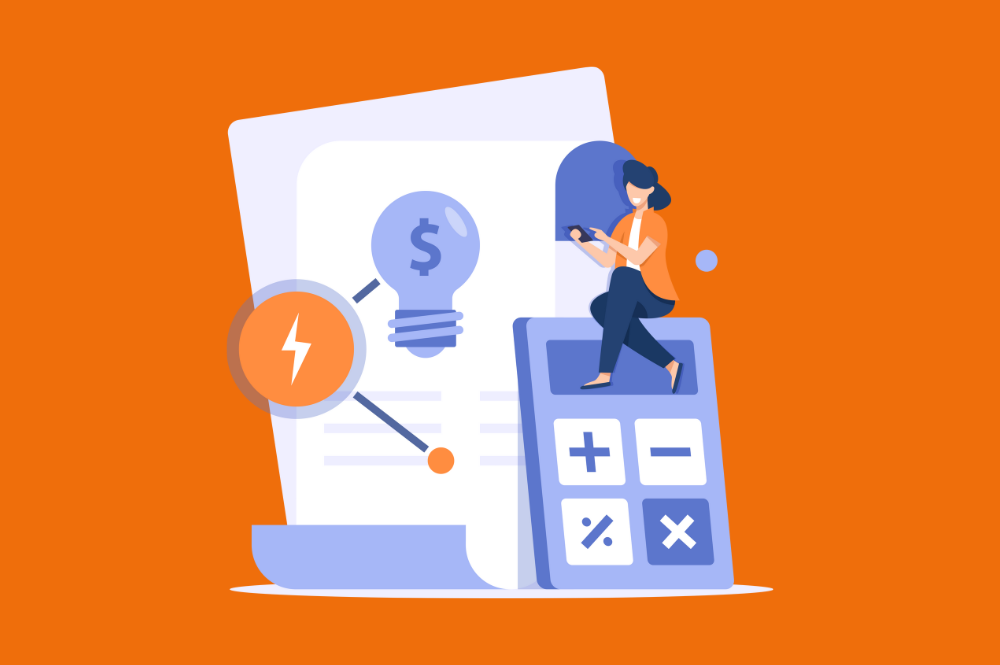Installing a solar system is a great way to reduce your electricity bills and play part in a greener future. Among the many questions people have before going solar is, ‘will I still receive an electricity bill once I go solar?’ While going solar does reduce your electricity bills, the short answer is yes. But, the details depend on a few factors. We outline those here for you.
Will I still receive an electricity bill once I go solar?
Understanding your electricity bill
Even if your solar panels generate enough electricity to offset your household or business’ usage, you may still have some fees. These are usually service to property charges, and night-time usage charges. So what are these charges?
Service to property charges: These are just fixed charges that cover the cost of delivering and maintaining electricity to your property. Unless you have an off-grid solar system, you are still connected a power grid utility. These charges are not related to your electricity consumption, and they will appear on your bill regardless of how much solar electricity your system produces.
Night-time usage charges: Solar panels generate electricity during daylight hours. Unless you have a hybrid solar system that includes a battery storage solution for your excess and unused electricity, then your home will still draw power from the grid at night-time. This results in usage charges. Adopting a battery storage solution can help to mitigate this cost by storing excess solar electricity generated during the day, for use at night.
Related reading: How to choose the right solar battery
Using a solar calculator
To get a better understanding of potential savings and costs, use a solar calculator. Many energy providers now offer these quick and simple tools on their websites. This tool can estimate your purchase costs, electricity bill savings, and the time it will take for your system to pay for itself. Some tools can even use smart technology to assess your roof size and determine the optimal number of panels for your system. Having said that, these are simple tools to give you a guide only. It’s best to consult with a solar expert like us to help you and your unique circumstances. Not to mention, design the best system to maximise your return on investment.
Related reading: Investing in solar: How to calculate the long term cost savings
Maximising solar benefits
To get the most out of your solar system, it’s essential to take steps that enhance your system’s efficiency and savings. Here’s how:
Monitor your energy consumption
Understanding your energy consumption is essential. By keeping an eye on when and how you use electricity, you can make informed decisions to adjust your habits and use more electricity during peak solar production times. This could be as simple as running appliances like dishwashers, washing machines and slow cookers during the day while your solar panels are generating the most power.
Optimise panel placement
The position of your solar panels significantly affects their output. Your panels should be installed in an area that receives maximum sunlight throughout the day. While this is typically a north-facing roof for us in Australia, advancements in tilting infrastructure are a great solution for roofs unable to utilise a north-facing aspect. Avoiding shade from nearby trees of buildings are also factors to consider in planning.
Related reading: Is my roof right for solar? How we make solar work for your unique property
Use solar storage solutions
As we touched on above, consider investing in a solar battery to store excess electricity generated throughout the day, to use later on. This stored electricity can be used during peak usage times or a night, reducing your reliance on grid power and therefore lowering your electricity bills.
Related reading: How to choose the right solar battery
Take advantage of net metering
Net metering allows you to earn credits for the excess electricity your system produces and feeds back into the grid. These credits can offset your electricity costs when your system isn’t generating power. So it’s a great way to lower bills even more.
Related reading: How to set up net metering
Regular maintenance
It’s essential to keep your solar panels clean and well-maintained. By regularly removing any dirt and debris build-up that could accumulate on the panels, and scheduling periodic inspections, you can ensure your panels are functioning correctly.
Related reading: How system checks maximise solar performance
Choose energy-efficient appliances
We’ll keep this one short and sweet. By combining your solar power with energy-efficient appliances and habits, you can further reduce your electricity bills.
Related reading: Quick and easy home energy audit: Reduce your bills in minutes
So, while going solar significantly reduces your bills, you are likely to still receive a bill due to service charges and night-time usage (if you system isn’t a hybrid system with a batter). Having said that, understanding these costs and utilising the points we’ve outlined above, you can make the most out of your solar investment and continue to bring down whatever consumption remains on your electricity bills.


Leave A Comment